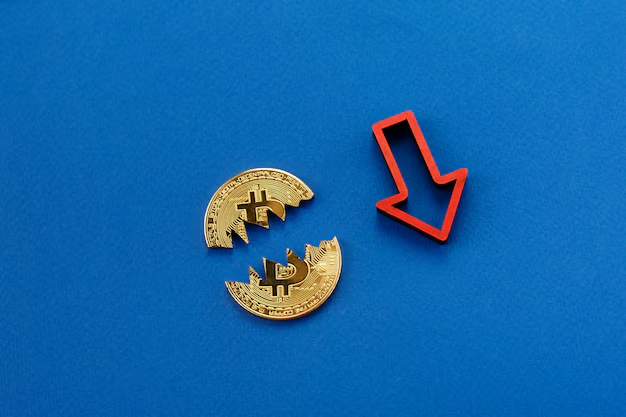Could XRP Be the New Bitcoin? Exploring Perspectives from the Reddit Community
As cryptocurrency continues to reshape the financial landscape, enthusiasts and investors consistently seek the next big trend. Bitcoin, the first and most renowned cryptocurrency, has established a substantial footprint in the market. Meanwhile, XRP, the native digital asset of the Ripple network, has captured the interest of many. But is XRP the next Bitcoin? This article delves into this captivating topic, drawing insights from discussions within the Reddit community and exploring the broader implications.
Understanding XRP and Bitcoin
🟡 Bitcoin: The Pioneer of Cryptocurrencies
Bitcoin is often regarded as the bedrock of the cryptocurrency world. Launched in 2009, it was created as a decentralized digital currency, allowing for peer-to-peer transactions without the need for intermediaries like banks. Bitcoin's underlying technology, blockchain, ensures transparency and security, making it a revolutionary financial instrument.
Key Takeaways:
- Decentralization: No single entity controls Bitcoin, which protects it from manipulation.
- Limited Supply: Only 21 million Bitcoins will ever be mined, creating scarcity.
- Store of Value: Often likened to digital gold, Bitcoin is seen as a hedge against inflation.
🔵 XRP: The Ripple Mission
XRP operates on the Ripple network, a digital payment protocol aimed at facilitating fast and cost-effective international transactions. Despite being centralized, Ripple's consensus mechanism offers high throughput.
Key Features:
- Efficient Transactions: Quick settlements within seconds, with minimal fees.
- Bank Partnerships: Ripple collaborates with financial institutions globally, enhancing its credibility.
- Tailored for Payments: Primarily used to bridge different fiat currencies in cross-border payments.
Comparing Bitcoin and XRP
Distribution and Supply
- Bitcoin's Scarcity: Limited supply is a major driver of its value, akin to gold.
- XRP's Supply: About 100 billion XRP were pre-mined, with a significant portion held by Ripple Labs, raising centralization concerns.
Use Cases
- Bitcoin: Primarily a store of value and investment asset.
- XRP: Designed to facilitate cross-border payments, potentially replacing traditional systems like SWIFT.
Community Perception
Bitcoin's strong community views it as a decentralized revolution. XRP, however, faces skepticism due to Ripple Labs' control and its banking partnerships, which some see as counter to the core principles of cryptocurrency.
What Does Reddit Say?
The Reddit community is a melting pot of opinions on XRP's future compared to Bitcoin. Here's a summary of key perspectives:
🤔 Optimists
- Efficiency Advocates: Highlight XRP's quick transaction times and low fees as major advantages.
- Banking Integration: Enthusiasts emphasize Ripple's partnerships with banks as a path toward mass adoption.
- Expanding Use Cases: Some believe XRP's practical applications in finance give it an edge.
😐 Skeptics
- Decentralization Concerns: Critics focus on XRP's centralized nature, arguing it contradicts blockchain ideologies.
- Market Perception: There's a perception that Bitcoin's brand and early mover advantage secure its dominance.
- Regulatory Risks: Ongoing legal issues with the SEC over XRP's classification continue to worry potential investors.
Potential Growth Factors for XRP
Institutional Adoption
The fast-settlement capabilities of XRP are attractive to banks and financial institutions looking for efficient transactions. Ripple's growing network may enhance XRP's legitimacy as a standard in cross-border payments.
Technological Upgrades
Ripple is actively working on technological enhancements to increase the scalability and security of the XRP Ledger, making it more appealing for diverse applications beyond banking.
Regulatory Clarity
The outcome of legal battles and regulatory decisions can significantly impact XRP's adoption. Favorable rulings may boost investor confidence and attract more institutional backing.
Challenges Facing XRP
Competition from Other Blockchain Solutions
Emerging blockchain technologies offering fast, cheap transactions create competitive pressure. A constant push towards innovation is crucial for staying relevant.
Navigating Legal and Regulatory Hurdles
The ongoing scrutiny from financial regulators poses risks. Clarifying XRP's legal status is essential for future adoption and market confidence.
Community and Perception Challenges
Building a supportive community is vital for long-term success. Ripple must address centralization concerns and promote the unique benefits of XRP effectively.
Key Considerations for Potential Investors
🚀 Bullish Signals
- Institutional Support: Growing partnerships with banks might indicate XRP's potential for mainstream adoption.
- Market Niches: XRP's focus on remittances and fast payments fills a specific market need distinct from Bitcoin.
🛑 Bearish Indicators
- Regulatory Uncertainty: Ongoing legal challenges create uncertainty and risk.
- Centralization Critique: Some investors may shy away due to perceived centralization, fearing a departure from blockchain's core values.
🔍 Evaluating the Market
Potential investors should weigh XRP's unique offerings against its risks. Staying informed about regulatory changes and technological advancements can inform sound investment decisions.
Visual Summary: Pros and Cons of XRP as the Next Bitcoin
| Pros | Cons |
|---|---|
| 🚀 Fast Transaction Speed | 🛑 Centralization Concerns |
| 🌍 Strong Banking Ties | 🙈 Regulatory Challenges |
| 💼 Practical Payment Uses | 📉 Brand Recognition vs. BTC |
Conclusion: XRP's Journey Ahead
While XRP offers distinct advantages as a facilitator of international payments, whether it can become the next Bitcoin remains a contentious issue. Its success hinges on overcoming regulatory challenges, enhancing technological capabilities, and fostering a supportive community that resonates with crypto's foundational values. As the landscape continues to evolve, XRP might carve out its unique space alongside Bitcoin, if not directly replace it.
To stay updated on developments, engaging actively in community discussions on platforms like Reddit or following official announcements can offer more insights and prepare you for informed decision-making in the dynamic world of cryptocurrencies.

